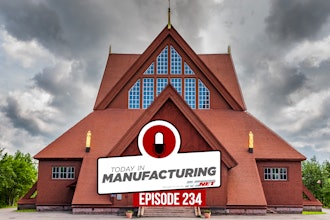There’s very little debate when it comes to the mantra of “Buy American.” The theory that Americans — and their government — put their dollars towards domestically produced goods has long generated lip service from both political parties and from citizens of all ages, races and incomes.
A 2017 Reuters/Ipsos poll, for instance, revealed that 70% of Americans believe it is “very important” or “somewhat important” to buy U.S. goods. But when it comes to actually doing it themselves, 37% said they wouldn’t pay more for those goods.
Well, that same survey has been re-issued by Ipsos/Reuters, and this time, we must view it in the lens of the pandemic: after a year-plus of supply chain challenges and fears over many critical goods being sub-par or unavailable, is the average American now more willing to put their money where his mouth is?
The answer is no — not even a little.
This week, Reuters released the latest results of its poll and the numbers, four years later, are virtually unchanged. While 69% of respondents feel an item being U.S.-made is at least “somewhat important,” the group that won’t pay a penny more for those products did not budge, holding strong at 37%.
But the supporters of "Buy American" do think that even if they won’t spend their own dollars on made-in-the-USA goods, the government definitely should. According to Reuters, “63% of Americans want U.S. agencies to buy American-made products in general, even if they cost significantly more.”
The report points to what it calls “a long-standing contradiction” where “Americans like the idea of buying American goods — but not if it means paying more personally for it.” Reuters stresses that this phenomenon will continue to complicate efforts by the federal government to boost American manufacturing of critical safety and pharmaceutical supplies, since domestic production could ultimately run up against “a daunting price issue.”






















